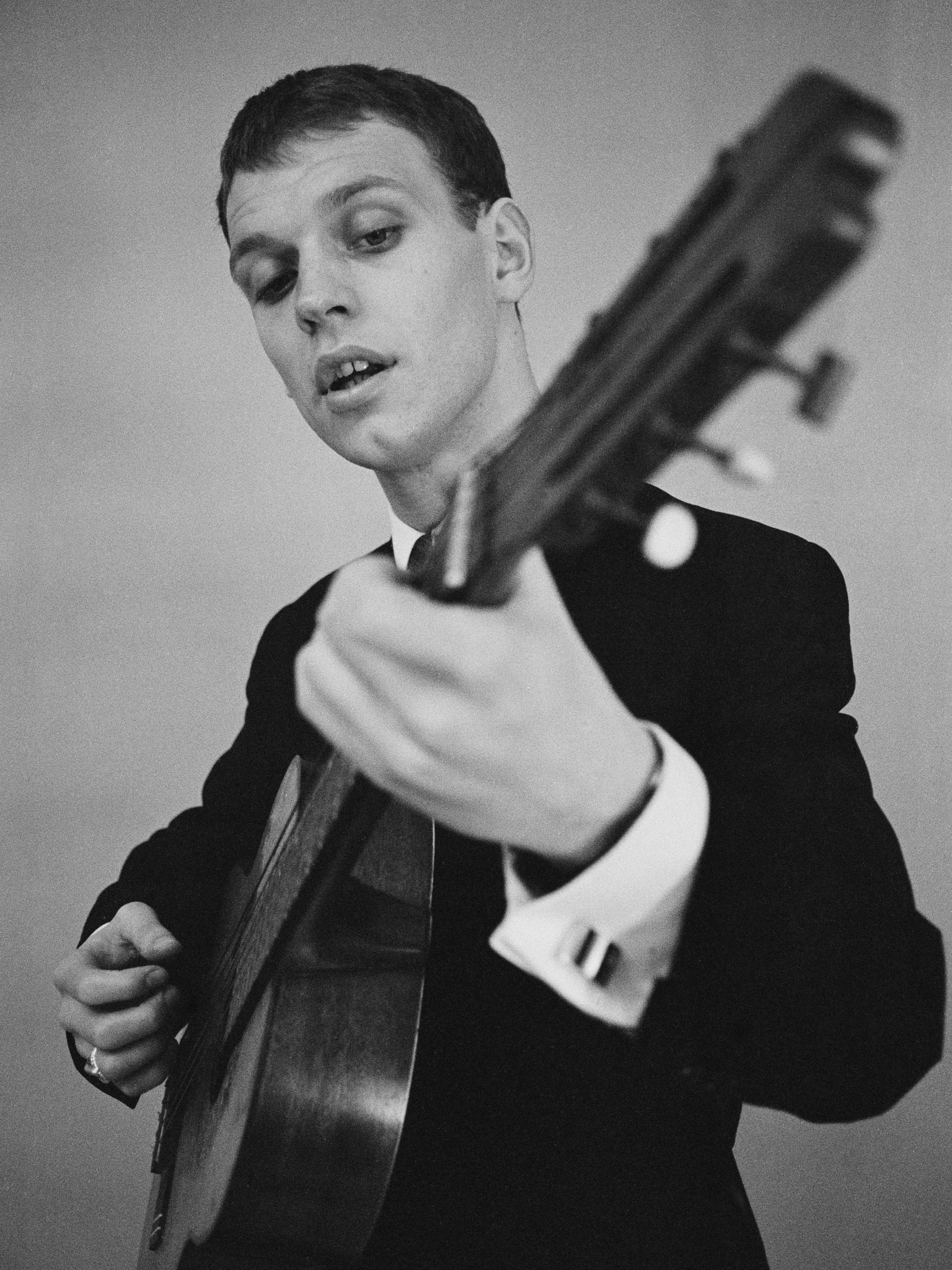Duffy Power: Blues and rock'n'roll singer whose troubled career still yielded collaborations with Jack Bruce and Bert Jansch

In the early 1960s, Duffy Power had the talent to break through as a successful British blues performer, but he was a troubled, unstable individual, which made it difficult for others to have faith in him. He did not record as much as he should have done – but what is available shows that he has been both underrated and overlooked by the British public.
Duffy Power was born Ray Howard in Fulham in 1941. He latched on to skiffle music after its emergence in the UK in the mid-1950s and formed a band which would play under Putney Bridge, "because of the echo". His friends nicknamed him "Duff" after the American film star Howard Duff, and he then fronted a rock'n'roll group called Duffy and the Dreamers. In November 1958 he was spotted by the impresario Larry Parnes, who saw him in a rock'n'roll dance competition at the Gaumont, Shepherd's Bush – and then found out that he could sing, too. Parnes' artists had dynamic names – Tommy Steele, Marty Wilde and Billy Fury. "Tyrone Power had died that week," Duffy told me in 1988, "and Larry liked the name. He believed in omens and portents."
Power was signed to Fontana Records but his singles "That's My Little Suzie" and "Dream Lover" failed to sell. He turned down a new Lionel Bart song, "Living Doll", which became a No 1 for Cliff Richard.
In 1960, Parnes sent him on a tour of Scotland with some Liverpool musicians, Cass and the Casanovas. "They were wicked boys," Power recalled. "They used to do the first set – and one night they did my whole act for a laugh. I went on and did them all again, but it went down all right anyway. Brian Cassar wanted a new name from Parnes as well: Brian Bumhole."
Power left home when he was 18 and moved in with his girlfriend, who happened to be a prostitute. "It was a bit of a blow," he told me in 1988. "But she did introduce me to the blues." Parnes dropped Power after he fought with his girlfriend – and for a time, Power was depressed and suicidal.
After moving to Parlophone Records in 1963, the producer Ron Richards thought that Power should have a grittier rhythm and blues sound, and he became only the second artist to record a Lennon and McCartney song (Kenny Lynch being the first) when he covered "I Saw Her Standing There" with the Graham Bond Quartet – that is, Bond, Jack Bruce, Ginger Baker and John McLaughlin. "The first session wasn't released because I didn't stick to the tune and it was really a rock'n'roll song with a very definite melody. I did it again, but as John McLaughlin was ill, Big Jim Sullivan came in instead."
He recorded a fine, sultry version of "It Ain't Necessarily So", and his other singles included "Hey Girl", "Parchman Farm" and "Tired, Broke and Busted"; but the best single was his own song, "A Woman Made Trouble".
Power worked with Alexis Korner's Blues Incorporated, but he found it difficult to be part of a band, even one as good as that. Next came Duffy Nucleus with Danny Thompson, John McLaughlin and Terry Cox. They released an album, Innovations, in 1971, which contained his best composition, "Mary Open the Door". From time to time he played sessions as a harmonica player and is featured on the soundtrack for The Italian Job (1969). He also worked with Bert Jansch and Ian Matthews.
For many years, Power worked for the DHSS as a messenger and hardly played at all. He recorded "I Am Lonely" for a Bert Jansch tribute, People on the Highway, in 2000, but mostly it was a career of wasted potential. About 10 years ago he told me, "I know I had something special, but I am too old to do anything about it now."
SPENCER LEIGH
Raymond Leslie Howard (Duffy Power), musician: born Fulham 9 September 1941; married Val; died 19 February 2014.
Join our commenting forum
Join thought-provoking conversations, follow other Independent readers and see their replies
Comments